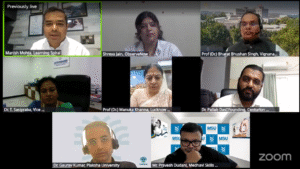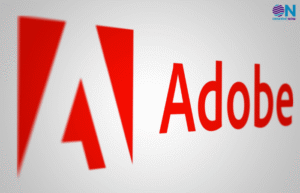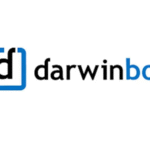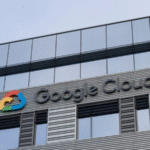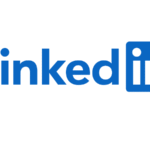Greatify CEO shares insights on Ethical AI in Education & Balancing Personalization with Privacy: Exclusive Conversation with ObserveNow

In the rapidly evolving landscape of education technology (EdTech), the integration of artificial intelligence (AI) stands as both a beacon of promise and a source of profound ethical considerations. As we harness the power of AI to personalize learning experiences, questions surrounding privacy, bias, and algorithmic transparency loom large. Yet, amidst these challenges lies the transformative potential to revolutionize how we understand and optimize individual learning processes.
 According to a report by Global data, By 2022 the Indian EdTech sector amassed $4.3 billion in revenue, with a notable CAGR of 16.8% from 2017. The pre-K-12 and K-12 education segment dominated, contributing $1.9 billion or 44.3% of the market’s total value. This growth is primarily driven by technological advancements and the increasing digitization of educational processes. By delving into the intersection of AI, neurocognitive research, and personalized learning methodologies, EdTech pioneers embark on a journey to redefine traditional educational paradigms. In this regard Siddharth Mala, Correspondent, ObserveNow interacted with Dinesh Kumar Poobalan, CEO & CTO, Greatify.
According to a report by Global data, By 2022 the Indian EdTech sector amassed $4.3 billion in revenue, with a notable CAGR of 16.8% from 2017. The pre-K-12 and K-12 education segment dominated, contributing $1.9 billion or 44.3% of the market’s total value. This growth is primarily driven by technological advancements and the increasing digitization of educational processes. By delving into the intersection of AI, neurocognitive research, and personalized learning methodologies, EdTech pioneers embark on a journey to redefine traditional educational paradigms. In this regard Siddharth Mala, Correspondent, ObserveNow interacted with Dinesh Kumar Poobalan, CEO & CTO, Greatify.
Below are a few edited excerpts from the interview:
How does Greatify navigate ethical concerns surrounding AI in education, such as privacy and bias, while leveraging its benefits for personalized learning?
Artificial Intelligence (AI) is no longer confined to science fiction; it is increasingly becoming an integral part of our daily lives, and education is no exception. The intersection of AI and education technology ushering in a new era of personalized, efficient, and innovative learning experiences. At Greatify, we prioritize ethical considerations, ensuring that privacy and bias issues are meticulously addressed while optimizing the benefits of personalized learning. We believe in leveraging state-of-the-art technology and rigorous models to mitigate information overload and maintain equity in learning outcomes. As per Digital Personal Data Protection Act, (DPDPA), we at Greatify, also respect data privacy laws that protect the privacy of Indian citizens’ personal data. This law is responsible for striking a balance between the recognized need to process personal data for various purposes, and individuals’ right to control and protect it. We tend to refine our AI solutions to reduce bias and ensure equal student treatment. We also educate stakeholders, such as students, educators, and parents, about responsible AI usage practices and data privacy. With an emphasis on trust, accountability, and academic excellence, we create an ecosystem where AI improves learning experiences while adhering to ethical standards, transforming education in a safer and more inclusive way.
How does Greatify stay at the forefront of educational technology trends and foster innovation within its team to maintain industry leadership?
We at Greatify continue to be at the forefront as one of the technology aggregators, in order to change the dynamic educational landscape. We offer diverse hardware and software solutions, encompassing smart boards, ManageX (an ERP system tailored for schools), and a Learning Management System (LMS), among others. We also believe in fostering innovation within the teams through strategic approaches based on market validation, product validation, extensive customer surveys, and competitor analysis.. Greatify’s solutions effectively address the real-world challenges faced by educational institutions. By leveraging data-driven approaches, Greatify can develop comprehensive, innovative modules like ExamX, PlaceX, ManageX, and LearnX. These modules are designed to meet the specific needs of the target audience.
As an edtech entrepreneur, how do you assess Greatify’s long-term impact beyond short-term metrics? What benchmarks indicate its effectiveness in addressing education’s systemic challenges and driving lasting change?
The success of any edtech company should be measured by its impact on student learning outcomes. We track metrics such as improvements in test scores, grades, and mastery of key concepts over time. Our company aims to establish a paperless atmosphere within both schools and the higher education ecosystem. On the other hand, empowering teachers is what I feel is a key to driving systemic change in education. Our company has a dedicated training division that works closely with educators to elevate their expertise in utilizing technology, automating processes, and ensuring the seamless integration of our solutions into educational institutions.
Read more: Kore.ai Launches XO Platform V11.0 for Enhanced AI Business Interactions
Furthermore, Incorporation of AI has been added to our educational framework to automate tasks performed manually by teachers, such as grading, timetable creation, and exam management. Also, our effectiveness in driving lasting change depends on how well our platform aligns with educational standards and curriculum requirements, in order to regularly review and update our content to ensure alignment and relevance to academic goals. Like any other company, our core goal is to expand our horizons and provide quality education to students by using the latest technological advancements. Fostering an environment and a unique collaboration among students and teachers is essential for driving lasting change in education. We measure the extent to which our platform promotes collaborative learning experiences. Hence, successfully overcoming these challenges demands not just effective market positioning but also a steadfast commitment to delivering top-notch training and services to schools and colleges and we always look forward to receiving feedback and continuous improvement in our services.
How do you envision the future intersection of AI, neurocognitive research, and personalized learning methodologies to revolutionize the way we understand and optimize individual learning processes?
Seeing the future of AI at the intersection of neurocognitive science and personalized learning approaches implies a paradigm shift in how we understand and optimize individual learning experiences. Neurocognitive research offers insights into how the brain processes information, learns, and retains knowledge. For example, adaptive learning algorithms can dynamically adjust the difficulty level of learning materials based on a student’s performance and cognitive state, maximizing engagement and knowledge retention.
Our integration of AI in education illustrates how technology can improve personalized learning experiences by automating administrative tasks and providing personalized support to students and teachers. We focus on innovation within and staying on top of emerging educational technology trends indicates a forward-leaning approach to embrace emerging research and methodology. By using AI, education institutions can transform traditional teaching methods to meet diverse learning needs and enable distinctive quality education in a digital world. Overall, the future intersection of AI, neurocognitive research, and personalized learning methodologies holds promise for revolutionizing education by providing learners with personalized, adaptive, and engaging learning experiences that optimize individual learning processes.




